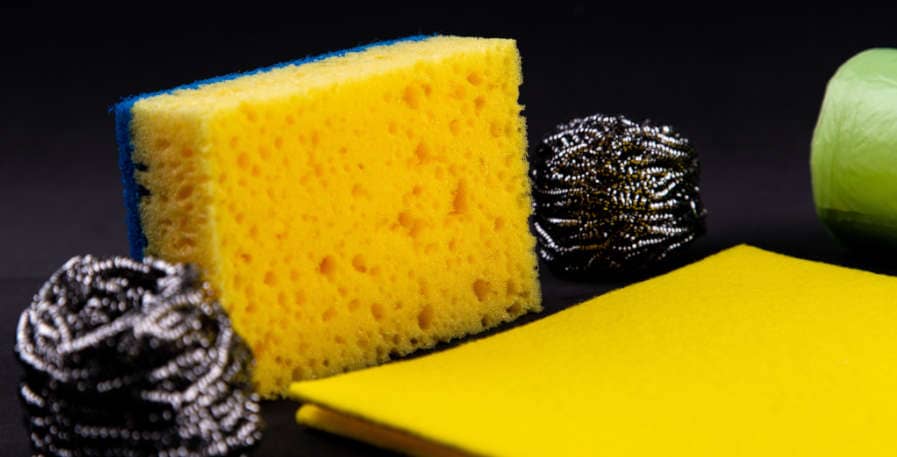When your bass strings rust, playing can become both annoying and unpleasant.
This is because rust impacts the sound and playability of the strings. It can also make the strings produce an odor and make them dangerous to touch with open cuts.
Having dealt with my bass strings rusting in the past, I decided to write this guide to help out anyone who is experiencing the same issue.
I`ll show you why it happens, and whether it`s okay to play strings despite them being rusty. Then I`ll show you what to do if your bass strings are rusty, and how to prevent them from accumulating rust in the future.
Why are my bass strings rusting?
In general, bass strings begin rusting when they are exposed to humidity changes or sweat and dirt from our hands. As humidity is corrosive to metal, improper storage, infrequent cleaning, travel, and sudden changes in dampness can thus cause bass strings to rust.
Where you store your bass guitar can have a big impact on how well its condition is maintained. In general, basses can be stored at room temperature without much issue.
However, bass guitars stored in climates where the humidity changes drastically over the year are more prone to trust. Furthermore, exposure to direct sunlight can have a negative impact on its condition, even in more stable climates.
Another common reason that bass strings begin to rust is that they are exposed to hand sweat and are left uncleaned.
Unless we wear gloves while playing the bass it can be hard to prevent hand sweat from seeping into the strings. This in turn can lead to the strings becoming corroded from the acidity in the sweat. However, hand sweat only tends to cause strings to rust when they are also left unmaintained and uncleaned.

Is it OK to play a bass with rusty strings?
It is a best practice to not play rusty bass strings as they can be a health hazard. This is because rusty strings have a higher chance of snapping. They can also cause bacterial infections if you touch them with an open cut. Furthermore, the strings might produce a less resonant and less pleasant sound.
It`s perfectly possible to play a bass with rusty bass strings. The issue is that it can be both an unpleasant and a dangerous thing to do.
The main reason for this is that if you play the bass with a cut on your finger, you are at risk of exposing it to bacteria. This can lead to an infection called Tetanus, which can lead to muscle contractions and if left untreated be fatal.
Another downside is that rusty bass strings are more prone to snapping. This can be painful if it snaps against your finger, or ruin a live show if it happens in the middle of a song. Depending on the amount of rust, the tone of the string can also be negatively affected. They also have a harder time staying in tune or intonate.
Lastly, rusty bass strings can also lead to the bass strings smelling unpleasant. Thus, if you have rusty bass strings and have experienced a strong garlic-like smell emanating from them, this is likely because of the rust.
Therefore, it`s a best practice to replace or attempt to rejuvenate rusty bass strings. For the same reasons, if you intend to play the rusty strings it`s a good idea to wear gloves.

How do you keep bass strings rust-free?
Bass strings can generally be kept rust-free by keeping them at a stable humidity and by regularly cleaning them. To further decrease the chance of rust developing, make cleaning the fretboard a regular part of your bass maintenance.
If the strings on your bass have already started to rust, there is a chance they can still be salvaged. Whether this will be possible depends on the amount of rust, and whether the rust has dug into the core of the string.
If your strings are already rusty, it is best to attempt cleaning them with oil or denatured alcohol. You can follow the steps in this guide to try salvaging them. If cleaning them thoroughly does not remove the rust, I recommend switching to a new set.
The best way to deal with rust will always be to prevent corrosion in the first place. Thus, here are 4 useful tips that will make it unlikely that bass string rust ever becomes a problem for you again:
1. Keep the bass at a stable humidity
Rust occurs in metal when the electrons on its surface react with moist air. Because of this, it`s best to keep your bass at stable humidity to prevent the strings from rusting.
In general, keeping your bass in a room with a regulated temperature is sufficient. You should however avoid leaving your bass in a car, in a garage, or outside for this reason.
If you live in a climate with major temperature and humidity changes throughout the year, it is a best practice to store your bass in a gig bag. This also has the added benefit of preventing your bass from being exposed to direct sunlight.
2. Clean the strings regularly
Another major culprit in causing strings to rust is dirt and sweat from our hands. This happens because the salt and acidity in our sweat cause the metal surface of the strings to corrode.
While it’s hard to stop ourselves from sweating, we can prevent this from causing our strings to rust by regularly cleaning them.
Personally, my hands sweat a good bit when I play. Thus, if I`m sticking to playing a single bass, I try to clean the strings every 1-2 months or so.
I`ve seen bassists recommend cleaning them more often, and even after each time you play. This will surely keep the tone of your strings optimized. However, I do find this to be overkill and have personally never experienced rust building up with this cleaning schedule.
Therefore, I believe cleaning the strings every 2 months or so is sufficient for most bassists. If you are like me and sweat builds up quickly in your hands, consider cleaning them once every month.
For an in-depth explenation on how to clean your strings, check out my guide on how to reuse bass strings
3. Keep the Fretboard Clean
The reason that keeping the fretboard clean helps prevents rust, is that dirt and sweat from your hands also get transferred to the fretboard.
Thus, if you clean the strings, they can quickly get reexposed to dirt and sweat when they are fretted. This will increase their need to be cleaned overall, and increase the chance of them rusting.
I find that the best way to circumvent this is to clean the fretboard when I clean the strings. This gives me one less step of maintenance to think about and makes the whole process faster. I go more in-depth about this process in my guide to bass maintenance.
You can get grime that has built up on the fretboard off by wiping it with a dry cloth. Do not use water, as this will seep into the wood and can damage the neck.
For the same reason, it is preferable to use oil to thoroughly clean the fretboard after wiping it. What oils you can use depends on the build material of the neck.
For the vast majority of bassists, MusicNomad F-ONE Fretboard Oil will be suitable. This is because it works on most common unfinished fretboards, such as rosewood, maple, and ebony.
4. Play with gloves (optional)
Playing with gloves protects your strings from sweat and your hands from the strings. They even help in preventing calluses from forming in your hands when playing. Therefore, gloves will minimize the rate at which dirt and sweat build up on the strings. You also won`t have to clean them as regularly.
If you want to go the extra mile in protecting your strings from rust, playing with gloves can thus be beneficial.
With that said, playing with gloves is not for everyone, and it is not a necessary step for preventing your bass strings from rusting.
Conclusion
It`s not uncommon for bassists to have their bass strings rust at some point. Usually, this results in a string change and learning how to prevent the issue from happening again.
Depending on how much rust has accumulated on the strings, you can attempt to save them by cleaning them. This is not guaranteed to work, but it’s worth a shot if want to avoid buying a new set of strings. I advise against playing rusty bass strings as this can pose a serious health risk and be overall unpleasant.
In the future, rust can be prevented by keeping the bass at a stable temperature and humidity. When this is combined with regular maintenance of the strings and the fretboard, rust is highly unlikely to accumulate.
A last tip for preventing rust from ruining a live show or band rehearsal is to always carry an extra set of strings. To learn more about how to store an extra set of strings and what their lifespan is, check out my guide on the shelf-life of bass strings.

